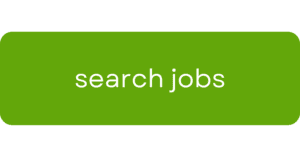Preparing for a job interview as a healthcare professional is nerve-wracking, but it doesn’t have to be. With the right preparation and mindset, you will feel confident and ready to impress your potential employer. In fact, working with a healthcare recruiter is a great way to ease some of the pain points that come with interview prep.
In this blog, we discuss some key steps to take for an interview prep as a healthcare professional.
Healthcare Interview Prep: Key Steps
1. Research the organization
One of the most important things to do before an interview is to research the organization you are applying to. This helps you to better understand their goals, values, and how you are able to contribute as a healthcare professional.
Use websites like LinkedIn, Glassdoor, and of course, the company’s website to learn as much as possible about the business and the individual conducting the interview. If you mention a piece of news or company history you read on their website, the interviewer will be impressed, demonstrating that you are genuinely interested in the firm.
Furthermore, collaborating with a healthcare recruiter provides valuable insights and information you can’t obtain elsewhere. Recruiters have a deep understanding of the employers they work with and their day-to-day operations, which means they have detailed information that is not readily available through other sources, such as the media. Subsequently, this helps you to understand the organization better and tailor your responses to the specific needs and expectations of the employer during the interview process.
2. Prepare your responses
While it is impossible to predict every question you’ll be asked during an interview, it is important to prepare some key responses beforehand. Firstly, consider your past experiences and how they relate to the job you are applying for. For example, if you are applying for a nursing position, you may be asked when you had to deal with a difficult patient or family member. Therefore, prepare a response highlighting your ability to handle challenging situations empathetically and professionally.
Secondly, you should prepare responses to common interview questions such as:
- Tell me about yourself.
- What are your greatest strengths and weaknesses?
- What made you interested in working here?
- Why did you leave your last position?
- What are your career goals?
- Can you give an example of a time you’ve worked well under a stressful situation?
By partnering with a healthcare recruiter, you are able to inquire about the employer’s typical interview process, the questions they ask, and any additional insights they have to help you showcase your full potential during the interview. This helps you better prepare and increase your chances of success in landing the job.
3. Dress professionally
As a healthcare professional, you are likely accustomed to wearing scrubs or other comfortable clothing during the workday. However, it is important to dress professionally for your interview to show your potential employer that you take the opportunity seriously. Wear business attire that is clean, neat, and appropriate for the job and organization you are applying to.
4. Bring a portfolio
Bringing a portfolio to your interview is a great way to showcase your skills and experience to your potential employer. Your portfolio should include a copy of your resume, relevant certifications or licenses, and examples of your work, such as case studies or presentations as applicable. Certainly, this demonstrates to the employer that you are organized, detail-oriented, and have a proven track record of success in your field.
Prepare everything you need to bring in advance so that you have one less stress on interview day. Here are some items to think about bringing: extra copies of your resume, a list of references, and something to take notes.
If you work with a healthcare recruiter, they are going to tell you what required items to bring to the interview.
5. Anticipate resume questions
Your resume serves as your potential employer’s first introduction to what you have done as a professional. Be ready to provide clarification if there are any remaining questions. Do you have a two-year experience gap on your resume? This is not a deal-breaker, so don’t worry; just be ready to explain why. Maybe you were taking a break to raise children, take care of a sick relative or continue your education. Employers value your honesty and commitment to following your path.
If you decide to partner with a healthcare recruiter, they review your resume first and give you hints about some possible questions to prepare for.
6. Prep for behavioral interview questions
Behavioral interview questions are designed to assess how you have handled past situations in the workplace. These questions often begin with “Tell me about a time when…” and require you to provide specific examples of how you have demonstrated certain skills or qualities in the past. Prepare for these types of questions by thinking about past experiences that demonstrate your skills and experience relevant to the job you are applying for.
Use the STAR (Situation, Task, Action, Result) method to structure your responses, which helps you provide a clear and concise example of your experience.
7. Research current trends in the healthcare industry
The healthcare industry is constantly evolving, and staying educated with current trends and developments is important. Simultaneously, this knowledge shows the employer that you are engaged with the industry and are committed to ongoing professional development.
Research current trends in healthcare, such as new technologies or treatment methods, and be prepared to discuss them during your interview. 
8. Practice active listening
Listening to the interviewer’s questions and responding thoughtfully and actively is important during the interview. In fact, active listening means paying close attention to the interviewer’s words, tone, and body language and responding to demonstrate that you have heard and understood what was said.
This shows the interviewer that you are engaged and interested in the conversation and are able to communicate effectively with patients, colleagues, and other stakeholders in the healthcare industry. Additionally, active listening helps you clarify any misunderstandings or questions during the interview.
9. Prepare some questions of your own
Interviews are two-sided. They interview you to determine whether you’re a good fit for the job, and you interview them to determine whether they’re a good fit for you. You’ll probably be asked, “What questions do you have for me?” after the interview. Prepare a list of inquiries that will assist you in determining whether the role is a good fit for you. Don’t just listen to the interviewer; participate in it. Evidently, this shows your potential employer that you are engaged and interested in the organization and the role you are applying for.
Prepare a list of questions ahead of time that demonstrates your knowledge of the organization and your interest in the position. For example, ask about the organization’s plans for growth or how they support ongoing professional development for their employees. In addition, if you want the position, take the opportunity to let the interviewer know that you are very interested and feel that you are the right choice for the position. Express that you hope you get the offer!
10. Follow up
Don’t forget to thank your interviewer in writing after the interview. This is a fantastic chance to express your gratitude to the interviewer for speaking with you and showing your continued interest in the position.
Moreover, use this opportunity to provide additional information or answer any questions that may have come up during the interview.
In conclusion, thorough planning and preparation are necessary for an interview as a healthcare professional. Dress professionally, ask questions, practice active listening, and follow up after the interview to demonstrate you’re a strong contender. Moreover, healthcare recruiters are able to provide you with training and more tips, so your interview goes as planned. Finally, always be upbeat and self-assured, and concentrate on presenting your abilities and experience in the best possible way.
And it seems you’re good to go. As you search for the ideal nursing or allied health job route, be sure to look at our job openings and contact one of our recruiters today!
About Voca: The Spirit of Work
Voca is a relationship organization focused on uniting talented healthcare professionals across
nursing and allied, as well as travel and local with exceptional companies. Headquartered in
Rochester, MN, Voca works coast-to-coast supporting national, regional, and local healthcare
companies. Voca is proud to be certified by The Joint Commission, which evaluates and accredits
healthcare staffing agency organizations and programs in the United States. We are committed
to creating and maintaining a workplace in which all employees have an opportunity to
participate and contribute to our mutual success and are valued for their skills, experience, and
unique perspective. For more information, visit https://myvoca.com/.
